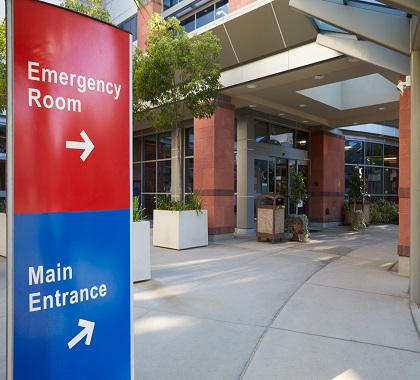Medicaid expansion has placed a severe financial strain on the budgets of the states that chose to expand under the provisions instituted by the Affordable Care Act (ACA). In several states, lawmakers are offering proposals to roll back or repeal their Medicaid expansion under new plans designed to improve the flawed program. Medicaid expansion, at its core, builds on a failing model in which the federal government dictates multiple aspects of the government insurance plan, thereby losing the beneficial aspects of market competition.
New Hampshire first voted to expand Medicaid in 2014. The state’s expansion program offers coverage to New Hampshire residents aged 19–65 whose incomes fall within 138 percent of the federal poverty level, about $16,243 for a single recipient or $33,465 for a family of four. The national government promised to cover 100 percent of the costs of newly eligible enrollees until 2017, but the matching rate will now decline, falling to 95 percent in 2018 and 90 percent in 2020. New Hampshire will eventually have to find other ways to pay for the newly eligible population.
In 2016, New Hampshire voted to extend the program for two years. Although the bill added a requirement for recipients to perform 30 hours per week of work-related activity, the quality of its reforms were, overall, quite low, and the waiver requesting its approve was quickly denied by the Centers for Medicare and Medicaid Services.
It’s important the bill ultimately failed because New Hampshire’s Medicaid expansion has already proven to be more expensive than its proponents expected. A new report commissioned by the New Hampshire Insurance Department and produced by Gorman Actuarial used data from 2016 to examine the effect of New Hampshire’s Medicaid expansion on the program’s cost and enrollment. The report found the people covered by the expanded Medicaid program are younger and more expensive than predicted.
Those enrolled in the New Hampshire Premium Assistance Program ended up comprising about 42 percent of the individual market in 2016. Of the new enrollees under the expansion, one-third were between the ages of 19 and 29, a higher proportion than what is found in the individual market. Although it was believed younger recipients would lower the costs associated with the expanded Medicaid population, the opposite proved to be true in New Hampshire, where the average expanded Medicaid patient’s costs were found to be 26 percent higher than those outside the program.
States like New Hampshire don’t have to wait for Congress to act to fix these failed programs; they have the means to reform their Medicaid programs now, and they shouldn’t hesitate to implement free-market reforms. In Arkansas, the originator of the private-option model, lawmakers approved legislation that would roll back its expanded Medicaid program, Arkansas Works. The legislation requires the state to request a 1115 waiver from the Department of Health and Human Services (HHS) to make the modifications. If approved, the waiver would reduce Medicaid eligibility in the state from 138 percent of the federal poverty level (FPL), $33,948 for a family of four, to 100 percent FPL, $24,600 for a family of four.
In its waiver application, Arkansas officials said the 60,000 people losing coverage could under the new program use tax credits and cost-sharing reduction payments to buy individual plans on the state marketplace. The waiver also would create work requirements for able-bodied Medicaid recipients. Under those provisions, adults remaining on Medicaid would be required to work, participate in job training, enroll in school, or actively look for employment at least 80 hours per month to stay enrolled.
Arkansas is not the only state to consider scaling back or eliminating its Medicaid expansion program. Legislators in Ohio and Oregon are considering reforms similar to what was passed in Arkansas. New Hampshire lawmakers, as well as legislators in other states that have expanded Medicaid, should follow the lead of Arkansas, Ohio, and Oregon and take advantage of the waiver process while there is an administration in the White House willing to approve reform-minded Medicaid changes.
The following documents examine Medicaid reform in greater detail.
2016 Actuarial Analysis of NH Premium Assistance Program
https://www.nh.gov/insurance/reports/documents/08-28-17-ga-nh-pap-analysis-final.pdf
This report, commissioned by the New Hampshire Insurance Department and produced by Gorman Actuarial, uses data from 2016 to examine the effect of New Hampshire’s Medicaid expansion on the program’s cost and enrollment. The report found the people covered by New Hampshire’s expanded Medicaid program are younger and more expensive than predicted.
The Personal Health Care Safety Net Medicaid Fix
https://heartland.org/publications-resources/publications/personal-health-care-safety-net-medicaid-fix
This article by Justin Haskins, Michael Hamilton, and S.T. Karnick of The Heartland Institute outlines a proposed reform plan for Medicaid, the Personal Health Care Safety Net Medicaid Fix. The authors say their Medicaid Fix would expand patient choice and give each Medicaid enrollee real money, not false promises, in the form of a personal safety net that would empower even the poorest of families to take care of itself and give more than 70 million Americans access to the private health insurance market.
The Report Every State Legislator Should Read
http://www.nationalreview.com/article/440411/obamacare-medicaid-expansion-hospitals?target=author&tid=954473
In this article published by National Review, Chris Jacobs writes about a new report issued by the Congressional Budget Office that analyzes profit margins for hospitals over the coming decade. It concludes Medicaid expansion will not make a material difference in hospitals’ overall viability.
Evidence Is Mounting: The Affordable Care Act Has Worsened Medicaid’s Structural Problems
https://heartland.org/publications-resources/publications/evidence-is-mounting-the-affordable-care-act-has-worsened-medicaids-structural-problems
In this Mercatus Center paper, Brian Blase examines the effect of the Affordable Care Act on Medicaid. Blase’s findings reveal Medicaid expansion has worsened many of the structural problems in the program. “The unanticipated expense casts doubt on the value of the ACA Medicaid expansion. The enhanced federal match incentivizes states to boost ACA expansion enrollment and to categorize Medicaid enrollees as ACA expansion enrollees, and also encourages states to set high fees for services commonly used by expansion enrollees and high payment rates for insurers participating in states’ Medicaid managed care programs,” wrote Blase.
The Growing Medicaid Expansion Bubble
https://heartland.org/news-opinion/news/the-growing-medicaid-expansion-bubble?source=policybot
In this edition of the Consumer Power Report, Executive Editor Justin Haskins examines Medicaid expansion and all the problems it has created for states, physicians and patients. “Despite the lack of attention the issue is getting, the growing Medicaid population could lead to state government meltdowns around the country and a national health care crisis for which most Americans are completely unprepared,” wrote Haskins.
Here’s Why States Must Resist the Temptation to Expand Medicaid
http://www.forbes.com/sites/sallypipes/2015/07/27/heres-why-states-must-resist-the-temptation-to-expand-medicaid/ – 420cec6d5b80
Sally Pipes, president of the Pacific Research Institute, argues in this Forbes piece states should resist any push to expand Medicaid. Pipes recommends replacing Medicaid entitlements with block grants. “If governors and state legislatures really want to help low-income folks while keeping their budgets under control, they should insist Washington[, DC] replace the failed, open-ended Medicaid entitlement with block grants pegged to inflation,” wrote Pipes.
Government Report Finds Obamacare Medicaid Enrollees Much More Expensive than Expected
http://www.forbes.com/sites/theapothecary/2016/07/20/government-report-finds-that-obamacare-medicaid-enrollees-much-more-expensive-than-expected/ – 75a85aba2dd0
Brian Blase of the Mercatus Center at George Mason University wrote in Forbes the costs for newly eligible adults were not decreasing as expansion supporters predicted they would. Blase says in a new report, HHS says newly eligible adult Medicaid enrollees cost about 23 percent more than the Medicaid enrollees who were eligible prior to expansion.
The Oregon Experiment—Effects of Medicaid on Clinical Outcomes
https://heartland.org/publications-resources/publications/the-oregon-experiment–effects-of-medicaid-on-clinical-outcomes?source=policybot
This article from The New England Journal of Medicine examines Medicaid outcomes in Oregon. Oregon gave researchers the opportunity to study the effects of being enrolled in Medicaid (compared to being uninsured) based on data from a randomized controlled trial, the “gold standard” of scientific research. The results showed no improvement in health for enrollees, but it did reveal better financial protections for patients and increased medical spending.
Why States Should Not Expand Medicaid
https://heartland.org/publications-resources/publications/why-states-should-not-expand-medicaid?source=policybot
Writing for the Galen Institute, Grace-Marie Turner and Avik Roy outline 12 reasons states should not expand Medicaid and should instead demand from Washington, DC greater control over spending to better fit coverage expansion to states’ needs, resources, and budgets.
Nothing in this Research & Commentary is intended to influence the passage of legislation, and it does not necessarily represent the views of The Heartland Institute. For further information on this subject, visit The Heartland Institute’s website, and PolicyBot, Heartland’s free online research database.
If you have any questions about this issue or The Heartland Institute’s website, contact John Nothdurft, The Heartland Institute’s government relations director, at [email protected] or 312/377-4000.




